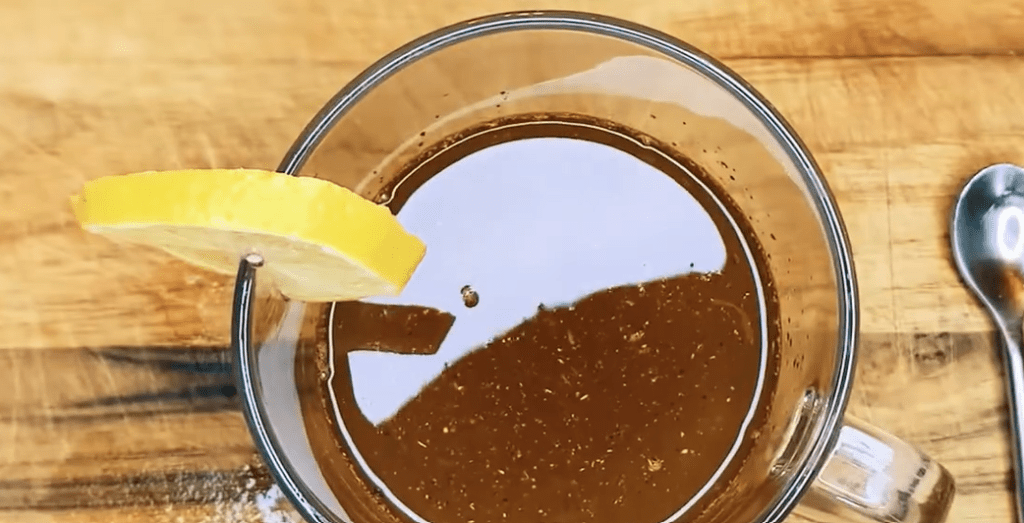The internet essentially stopped when Beyoncé revealed that she had used the Lemon Cleanse to rapidly lose weight for Dreamgirls. Her unquestionably noticeable transformation caused interest in a detox that Stanley Burroughs first proposed in the 1940s to soar. The Lemon Cleanse, also known as the Master Cleanse, is a severely restrictive liquid-only diet plan that is intended to reset digestion, eliminate toxins, and promote quick weight loss. It has been resurrected, praised, and criticized numerous times over the last 20 years, frequently in equal measure.
Participants pledge to consume only a concoction of lemon juice, cayenne pepper, Grade B maple syrup, and water—sipped six to twelve times a day—while completely avoiding solid foods. Alongside that mixture, there is a laxative tea at night and a saltwater flush every morning. Some people find that this method works incredibly well for getting results quickly. For others, it’s self-care masquerading as starvation.
The Lemon Cleanse has made a comeback in recent months on social media, especially TikTok, where the hashtag #lemoncleanse has amassed millions of views. Its visual appeal is one factor contributing to its viral success: the bright yellow beverage, the ceremonial preparation, and the stoic discipline of not eating all work together to tell a story of strength and change. To highlight the drama of their journey, influencers display empty refrigerators, lemon pyramids, and before-and-after pictures with remarkably similar lighting.
Lemon Cleanse Diet (Master Cleanse): Bio and Key Information Table
| Feature | Description |
|---|---|
| Name | Master Cleanse (Lemon Cleanse Diet) |
| Creator | Stanley Burroughs (1940s), revived by Peter Glickman in the 2000s |
| Core Ingredients | Lemon juice, maple syrup, cayenne pepper, water |
| Supplementary Items | Herbal laxative tea, saltwater flush |
| Duration | 10–40 days, no solid foods allowed |
| Purpose | Detoxification, rapid weight loss |
| Popularized by | Beyoncé, Jared Leto, and various wellness influencers |
| Risks | Nutritional deficiencies, dehydration, fatigue |
| Expert Consensus | Not recommended for long-term health or sustained weight loss |
| Reference Source | WebMD – Master Cleanse Diet |

Although the cleanse’s promise of detoxification is enticing, its scientific foundation is still in doubt. The liver and kidneys are already the body’s highly effective detoxification system, according to nutritionist Kathleen Zelman. She emphasizes that the purported toxins the diet targets aren’t even clearly defined and says, “Nobody needs a detox.” Thousands of people have tried the regimen in spite of this criticism, frequently in the hopes of changing not just their digestive systems but also their lives.
Participants commonly report symptoms such as headaches, fatigue, irritability, and dizziness that are referred to as “detox signs.” Health professionals attribute these to caffeine withdrawal and calorie deprivation, but the diet’s creators say they are a result of the body clearing impurities. These symptoms can be demoralizing for newcomers. But after finishing the cleanse, people frequently report feeling “lighter,” both physically and emotionally—freed from bad eating habits, cravings, and dependencies.
Through the use of publicity and celebrity support, the Lemon Cleanse has evolved into a standard practice for people who want to be disciplined and beautiful. For example, after playing a heavier version of John Lennon’s assassin in Chapter 27, Jared Leto famously used the cleanse to lose a significant amount of weight. Although his metamorphosis was striking to look at, he later acknowledged that the process was draining and unsustainable.
The cleanse becomes symbolic for many followers. The Master Cleanse has been reimagined as a rejuvenating ritual during the last ten years, especially as minimalist aesthetics and wellness trends have gained popularity. Weight loss is no longer the only goal; self-reclamation is now. For people going through stressful times, breakups, or significant life changes, when breaking old habits feels especially healing, this story is especially potent.
However, there is an indisputable drawback. The cleanse is essentially devoid of vital nutrients like fiber, protein, and healthy fats and has a remarkably low calorie count. Nutritionists caution that this method of weight loss may not actually reduce fat but instead cause muscle loss and dehydration. Most participants regain their weight after the diet is over, sometimes with interest.
It’s interesting to note that the main components of the diet are safe: maple syrup supplies natural sugars, cayenne promotes circulation, and lemon juice contains vitamin C. A glass of this spicy lemonade might be refreshing when consumed in moderation. However, the cleanse is unbalanced as a complete nutritional plan. Instead of using this drink as a meal replacement, experts like Zelman recommend incorporating it as a supplement to a whole-food diet.
The diet is still surprisingly popular in spite of these cautions, particularly among people looking for quick results for public appearances, weddings, or photo shoots. It is especially appealing because it doesn’t require a chef, a gym, or a subscription. Many people find that the cleanse gives their hectic lifestyle direction and structure. Decision fatigue is momentarily alleviated by doing away with all food choices.
Contextually, the Lemon Cleanse is a reflection of a larger cultural trend: people are becoming more and more willing to make temporary sacrifices in order to see rapid, noticeable change. Fitness boot camps, juice cleanses, and intermittent fasting are all motivated by the same impulse. The clarity of the rules is just as appealing as the results. The knowledge of precisely what to eat, when to eat it, and how to do it is especially reassuring.
Many people now incorporate this cleanse into seasonal routines, such as January detoxes, spring resets, or even post-holiday gut cleanups, by carefully choosing the right time. The sense of achievement it gives those who complete it is genuine, even though the long-term health effects are still up for debate. That sensation can be a powerful motivator in the era of self-optimization.
Participants who choose to go through the cleanse frequently share very intimate thoughts. “I felt stuck, so I started it,” a 27-year-old Chicago woman stated. However, by day six, I understood that I was also shedding emotional weight in addition to physically cleansing my body. Such testimonies give what might otherwise appear to be just another diet fad emotional depth.
It’s important for both early adopters and inquisitive skeptics to approach the Lemon Cleanse mindfully. It is crucial to speak with a healthcare professional before starting, particularly for those who have underlying medical issues. Avoid it at all costs if you are pregnant, have diabetes or heart disease, or are recuperating from an illness. No matter how alluring the claims, safety must always come first.
